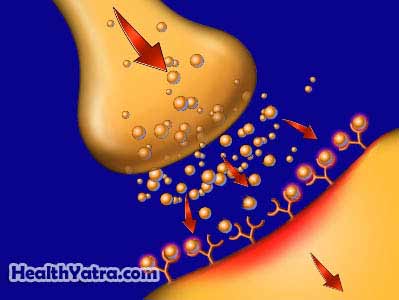Definition
Drug abuse is continued misuse of drugs even when faced with drug-related job, legal, health, or family difficulties.
Drug addiction is long-term, compulsive drug use. The person may attempt to stop using drugs, but repeatedly return to drug use despite physical, emotional, or social harm. Drug dependence means that the body has begun to require the drug in higher doses to have the same effect and to avoid withdrawal symptoms.
Drugs that commonly abused include:
- Cocaine
- Heroin
- Morphine
- LSD
- Marijuana
- Sedatives
- Methamphetamine (crystal meth, speed)
- PCP
- Ecstasy
- GHB
- Ketamine
- Steroids
- Inhalants
- Prescription medicine that is used improperly, such as narcotic pain relievers, amphetamines, sleeping pills, or anti-anxiety medicine
Causes
The exact cause of drug abuse and dependence is unknown.
There are many theories, though. For example, some people may inherit certain genes that make them more likely to abuse drugs. Another theory is that people learn how to use drugs by copying the behavior of others. Also, changes that happen in the brain due to long-term drug use may reinforce a person’s desire to keep using drugs.

Risk Factors
Drug abuse and addiction are more common in young men but can occur in anyone at any age. Other factors that may increase the risk of drug abuse and addiction include:
- Family members with substance abuse problems
- Early antisocial behavior, such as breaking the law or repeated lying
- Social and peer pressure, which may include spending time with other drug users
- Stress
- Easy access to drugs
- Mental health conditions, such as anxiety, depression, panic disorder
Symptoms
It is common for a person to deny drug abuse and addiction.
Symptoms of drug abuse include:
- Repeated work, school, or home problems due to drug use
- Continued use of drugs even though it means risking physical safety
- Recurring trouble with the law related to drug use (eg, driving while under the influence of drugs)
- Continuing to use drugs despite drug-related problems in personal relationships
Drug abuse can occur without being physically addicted to a drug.
Symptoms of drug addiction include at least three of the following:
- Craving for the drug
- Inability to stop or limit drug use
- Tolerance (taking greater amounts to feel the same effect)
- Withdrawal symptoms that occur when the drug is stopped
- Significant amounts of time trying to acquire drugs and recover from the effects
- Drug use continues even when it causes or worsens physical or mental health problems
Diagnosis
Your doctor will ask you about your symptoms and medical history. A physical exam will be done.
Your doctor will also ask about:
- Your history of drug use
- Emotional problems that may have occurred while using drugs
- Problems with work, school, homelife, or the law
Your doctor may order blood or urine tests to check for the presence of drugs.
Treatment
While there is no cure for drug abuse or dependence, there are three main treatment goals:
- To help you stop using drugs
- To decrease the toxic effects of the drugs being used and to aid in symptoms of drug withdrawal, called detoxification
- To prevent relapse
Successful treatment depends on you being able to recognize that you have a problem and having the desire to change. Recovery takes a long time. It is a difficult process. In some cases, you may need to go through treatment several times.
Treatment options may involve one or more of the following:
Medications
Medication may be recommended to help relieve withdrawal symptoms and reduce the risk of relapse.
Therapy
Therapy can help raise your awareness of issues and lifestyle choices that lead you to abuse drugs. Through therapy, you can improve your coping skills and problem-solving skills. You can also learn how to replace drug-using activities with healthier choices. It is also important that your family is involved in your treatment.
Support Groups
There are many organizations and support groups dedicated to helping people become drug-free. Two examples are the 12-step programs Narcotics Anonymous and Cocaine Anonymous. Members meet regularly to talk about their drug-related problems and their recovery. They provide a network of support.
Prevention
To reduce your chance of drug abuse or addiction, take these steps:
- Learn about risks related to drug use.
- Do not spend time with people who are abusing drugs.
- Learn ways to handle peer pressure.
- Have a good relationship with your children to help reduce their risk of using drugs.
- Seek therapy for anxiety, depression, and other mental health problems.
Keywords :
Down Syndrome Definition, Down Syndrome Causes, Down Syndrome Symptoms, Down Syndrome Complications, Down Syndrome Surgery Cost in India, Down Syndrome Treatment Hospital in India, Down Syndrome Treatment in India, Down Syndrome Doctors in India, Down Syndrome Meaning in Hindi, Down Syndrome Meaning in Bengali, Down Syndrome Meaning in Arabic, Down Syndrome Treatment cost in 2024, Down Syndrome Hospital in India, Down Syndrome Treatment Near Me, drug de addiction programme in india, which ministry of india works for drug de addiction, drug de addiction programme ppt, drug de addiction pdf, drug addiction in india statistics 2023, drug de addiction topic, drug de addiction centre near me, drug de addiction medicine,
